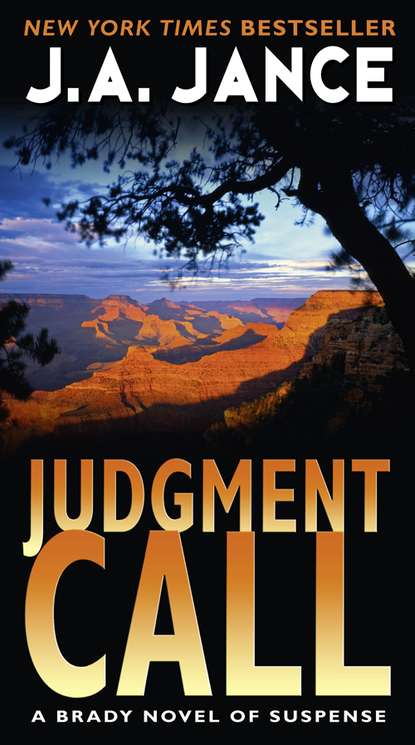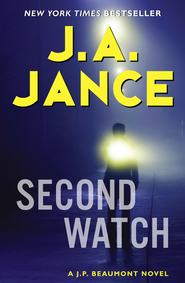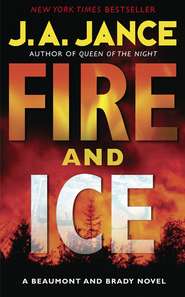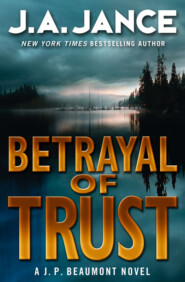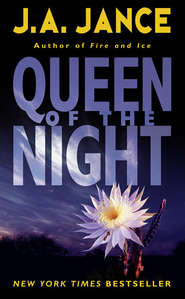По всем вопросам обращайтесь на: info@litportal.ru
(©) 2003-2024.
✖
Judgment Call
Автор
Год написания книги
2018
Настройки чтения
Размер шрифта
Высота строк
Поля
Maggie Oliphant’s favorite credo was “If it is to be, it is up to me,” and she lived by those words. She had established the Bisbee Art League and had raised enough money to rent a suite of rooms in the once abandoned and now repurposed Horace Mann School, where, on Fridays, qualified art teachers taught pottery making and charcoal drawing along with pastels and oil painting. When Maggie needed money to pay the rent or pay the teachers, she found it by writing grants or raised it by holding fund-raisers.
One of her fund-raising ideas consisted of bringing people to town to participate in weeklong hands-on workshops or, as Butch Dixon liked to call them, writers’ conferences with no writing. She managed to cajole name-brand painters, potters, and sculptors into teaching what she termed “master classes.” On the Saturday night of each weeklong workshop there was a celebratory dinner and one-man show for the workshop’s lead artist. On the Sunday afternoon at the end of each conference week, there was an end-of-conference reception where guests were encouraged to purchase work done by the various participants during the week, with the art league receiving a commission from every sale.
Of all the workshops offered, the Plein Air master classes held in April of each year were by far the most popular. This year’s Plein Air session was being led by M. L. Coleman, a well-respected Sedona landscape artist with an international following. Maggie considered Michael Coleman a big enough catch that she had gone to the trouble of creating a Saturday-night gala in his honor. The event, including both a one-man show and an auction, was booked for the clubhouse of Rob Roy Links, in Palominas, with art collectors from all over Arizona expected to attend.
During the conferences, workshop participants stayed at local lodging establishments that, depending on their financial situation, ranged from economical rooms in private homes to upscale B and Bs. When the light was right—in the early mornings and late afternoons—attendees spread out around town to do their individual painting wherever they chose. During the middle of the day, they gathered in one of the foundation’s repurposed junior high school classrooms where the session’s moderator conducted workshop-style classes. At lunchtime, the fifteen Plein Air painters as well as their spouses and significant others gathered at Daisy’s to eat and chat. The back room at Daisy’s was the only place in town large enough to accommodate a group of thirty on a daily basis.
Having Junior blow a gasket in the midst of Plein Air week had obviously created a problem.
“I hope whatever’s going on with Junior isn’t serious,” Joanna said.
“That’s what I hope, too,” Eva Lou agreed, “but Moe and Daisy were both clearly upset.”
“It’s good of you to help out,” Joanna said, giving Eva Lou a quick hug on her way past.
The fact that Eva Lou had taken it upon herself to step in and help out was typical. Jim Bob and Eva Lou Brady were good people who, in the aftermath of their son’s death, had continued to treat Joanna more like a daughter than a daughter-in-law. When their son’s widow had married again, they had welcomed Butch Dixon into their lives, and they were as much Dennis’s grandparents as were Joanna’s mother, Eleanor, and her husband, George Winfield.
“It’s a shame about that poor Ms. Highsmith,” Eva Lou said as she escorted Joanna toward the corner booth.
Joanna stopped in midstride. “What about her?” she asked.
Eva Lou seemed flustered. “Well, she’s dead, isn’t she?”
“Who told you that?” Joanna wanted to know.
She and Alvin Bernard had agreed that her department would be handling all media relations dealing with the Highsmith homicide. At this point, no official information about the homicide victim’s identity had been released, at least not as far as Joanna knew.
“Those kids over there,” Eva Lou said, nodding toward a booth where four high-school-age kids were huddled together, their attention focused on a cell phone that they were passing around.
“You’re sure they mentioned Ms. Highsmith by name?” Joanna asked.
“Absolutely. When I came up to the table, they were all staring at one of those little cell phone things, talking and laughing and pointing at a picture. At first I couldn’t make out what was on the screen, but finally I did. It looked like one of those crime scene stories on TV.
“About that time, one of them—the tall, lanky, string-bean guy in the corner next to the wall—was downright gleeful,” Eva Lou replied. “I heard him say something like, ‘Way to go, Ms. Highsmith! The wicked witch is dead!’ Considering the woman was their principal, I thought that was in very bad taste. One of the two girls—the one with the long, dark hair—was saying that maybe the school board would end up having to cancel school for the rest of the year.”
Eva Lou had been leading Joanna on a trajectory that would have taken her directly to the corner booth where Jeff Daniels, Butch, and the three kids, now joined by Joanna’s former father-in-law, Jim Bob Brady, had all settled in for lunch. Instead, Joanna again stopped short.
“They were looking at a picture?” she asked.
Eva Lou nodded. “On one of those little iPhone kind of things. When I walked up to the table the tall kid again—the one in the corner—tried to cover the screen, but it didn’t work. Ever since my cataract surgery, my distance vision is perfect.”
“Maybe I should go ask them about it,” Joanna suggested.
“Maybe so,” Eva Lou agreed.
Veering off in another direction, Joanna dodged away before Dennis saw her coming. She hurried toward the booth where the group of teenagers seemed to be preparing to leave. Joanna stopped in front of their booth and then pulled over an extra chair from a nearby table, effectively blocking their exit.
“I’m Sheriff Brady,” she said. “Good morning, or is it afternoon already? Mind if I join you?”
She recognized at least three of the kids. Two of them—Tiffany Brazile and Dena Carothers—were on the cheerleading squad. Billy Stout was a big man on campus, a key player in every sport. The other boy, tall and skinny, was someone Joanna didn’t know. Faced with her uniformed presence, the four teenagers exchanged guilty glances. The expressions on their faces said they did mind having Joanna join them, but none of them had nerve enough to say so. Without waiting for an invitation Joanna sat down.
“I understand that a little while ago, you were overheard discussing one of our ongoing investigations—the disappearance of Ms. Debra Highsmith. Do you mind sharing whatever information you might have?”
“We don’t really know anything,” Tiffany said too quickly. “We were just looking at a picture on Facebook. It’s no big deal.”
“Excuse me, but it is a big deal,” Joanna corrected. “You seem to be in possession of details concerning the investigation that have not yet been released to the public. I need to know exactly what you know about my case and how you came to have that information.”
“What if we don’t want to tell you?” The speaker was the boy in the corner.
“This is a homicide investigation,” Joanna said flatly. “So far this is simply an informal conversation. If you would prefer something more official, I could always throw all of you in the back of a couple of patrol cars and take you on a field trip out to the Justice Center. In that case, we’d be having this discussion in one or two of my department’s interview rooms. Your call.”
“If I ended up in jail, my parents would kill me!” Tiffany exclaimed. “Go ahead, Marty. Show her the picture.”
“My parents would do the same thing,” Dena said. “Show it to her.”
Shaking his head, the boy named Marty pulled an iPhone out of his shirt pocket. After scrolling through several pages, he handed the device over to Joanna. She recognized both the scene and the subject—Debra Highsmith, lying dead, struck down by a hail of gunfire on the rock-strewn shoulder of High Lonesome Road.
Sheriff Brady prided herself on her ability to maintain a poker face, but it took a superhuman effort for her to keep her facial features utterly neutral in the face of that damning photo. She knew that photo could have come from only one source—her daughter, Jenny.
“You believe this to be …?” Joanna prompted.
“That’s Ms. Highsmith, our principal,” Dena said quickly. “That’s her hair, and she’s wearing her favorite suit. She wore it to school every week.”
Joanna turned her unblinking gaze on the owner of the iPhone. “What’s your name?” she asked. “I don’t believe I’ve seen you before.”
“Marty. Martin Pembroke. My dad’s the new doctor at the hospital.”
“I’m glad to meet you, Marty,” Joanna said without offering her hand. “My source tells me you weren’t exactly overwhelmed with grief when you learned Ms. Highsmith might be dead. My source says that you seemed downright gleeful and said something to the effect that the wicked witch is dead.”
“She was a witch,” Marty said.
“I’m assuming that means she wasn’t one of your faves,” Joanna said.
These kids already knew Debra Highsmith was dead. There was no point in Joanna’s trying to maintain otherwise, so she didn’t bother.
“Earlier this year she suspended me for ten days for no reason,” Marty Pembroke grumbled. “If my father hadn’t appealed to the school board, I wouldn’t have been able to make up the work and might not have been able to graduate with my class.”
“Well, boo-hoo-hoo,” Joanna said, making zero effort to tone down the sarcasm. “You claim she suspended you for no reason? Really?”
“It was all because some jerk put a can of beer in my locker. The beer wasn’t even mine. It was one of my friends’ idea of a joke. She blew it all out of proportion.”
“Excuse me,” Joanna pointed out, “but being a minor in possession of alcohol is against the law.” She passed the phone back to him. “Saying you were suspended for no reason isn’t exactly being fair to Ms. Highsmith. It turns out there was a reason for your suspension—and a valid one at that. As for having a beer at school? That certainly compounds an already difficult issue. Did you mention to Ms. Highsmith that you thought someone else had put it there?”
“No,” Marty said. “What do you think I am, some kind of snitch?”
“There you are,” Joanna said agreeably. “You didn’t rat out your pals, and you’re the one who got suspended. Fair enough. You pays your money and you takes your choice. Still, does a ten-day suspension warrant being glad someone is dead?”
“All we were doing here was talking, and just because I said it doesn’t mean I meant it,” Marty muttered. “Besides, all any of us know about what happened is what we saw in the picture—just her body lying there.”





